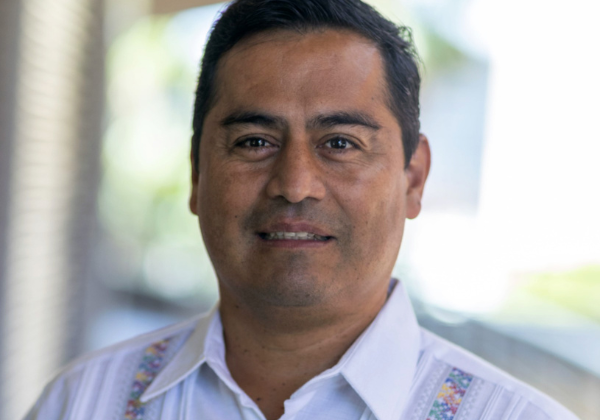Inspired by My Parents
The greatest motivation for my enrolling, attending, and completing college was my parents. My mother was a garment worker (costurera) and my father a mattress assembler. I grew up in Southeast LA, and as a first generation college student in all of our families, as well as a first generation Mexican-American, seeing my parents work from 4 a.m. to 6 p.m. daily, even some Saturdays, in the arduous industrial factories in Vernon, CA, became more than an inspiration. Going to college was my parent's social dream, as Mexicano workers who migrated to the U.S. in the 1950s.
Neglect at Bell High School
But I want to share another motivator in my going to college, and that was the neglect I experienced at Bell High School. While I did not know it at the time, I had attended a severely under-resources high school, that was full of deficit conceptions about who we can become, especially because of the way Chicanx/Latinx students were (and still are) racialized. I recall a trip we took as part of chemistry class, to the San Onofre nuclear power plant (not closed down). It was in this learning field trip that we were introduced to racism and low expectations. Rather than talk about the science behind nuclear power generation, the emphasis was on the janitorial and service jobs available. Rather than explain the physics of nuclear reactions, we got a lesson in how Mexican pottery is harmful and emits high levels of radiation. I could not make these stories up.... Fast forward to my senior year, when I applied to several colleges. Mr. Bowe (que no descanse en paz), our college advisor, literally assumed we were undocumented. In so doing, he would consistently talk about out of state tuition fees. Back then, in-state tuition for Cal State LA was about $800 per year ($400 per semester). Yet, he quoted me (and other students) $10,000 for tuition. Having grown up humbly and with parents who had low incomes, the idea of having to pay $10,000 annually caused so much strain in my family. It was not until I was actually at Cal State LA that I realized Mr. Bowe was misinforming and misleading almost all Chicanx students he (ill) advised.
Overcoming Educational Challenges
While in college, one of the greatest challenges I faced was the fact that I was reading and writing at an 8th grade level! Even though I was my high school valedictorian, and had a perfect 4.0 GPA in my academic high school journey, I did not realize the inequities I was experiencing, nor the extent of educational neglect students like myself experienced.
But this actually became a motivator; I drew from my mother and father's work ethic-- "su trabajo es estudiar m'ijo" my parents would say. And so, growing up seeing them work, be exploited, and still come home and dedicate care for us, was such a motivator. No matter what institutional barriers I was to face at Cal State LA (1990 - 1992) and then UCLA (1993 - 1995), I was intent on staying the path. I owed it to them and my community to work hard, harder than those UCLA privileged students.
Acknowledging Support Structures
I want to contextualize my experience by saying that I didn't accomplish academic success alone, as if by sheer will and "grit" we succeed. There were structures of support along the way, both familia and institutional (like EOP), and the occassional professor that valued their students and saw infinite potential in us.
Advice to First-Gen Students
After all these years, what I would say is to draw from, to restore, and to reclaim your community cultural wealth, the beautiful histories you each bring, of struggle but also genius. I have no doubt that your journeys are fraught with struggle--but the beauty of our familial and ancestral cultural histories is a source that grounds you and supports you wherever you go.
I also want to caution the notion of careerism, so rampant in a lot of universities. Going to college is not just about getting a job; for me, the primary function is human development. Find the private and academic social spaces of brilliance, intellectual curiosity, and the development of your minds, in all things you read, learn, discuss, engage with. Otherwise, you can lose purpose and your university experience becomes a mere check-off or means to an end (degree completion). Process is just as important.
Finally, take what you learn and build with and alongside families and communities. Continue your learning journey everywhere you go, in all the career spaces you are a part of, so that knowledge becomes not just something few of us develop through our university careers, but that it is shared with the people.
